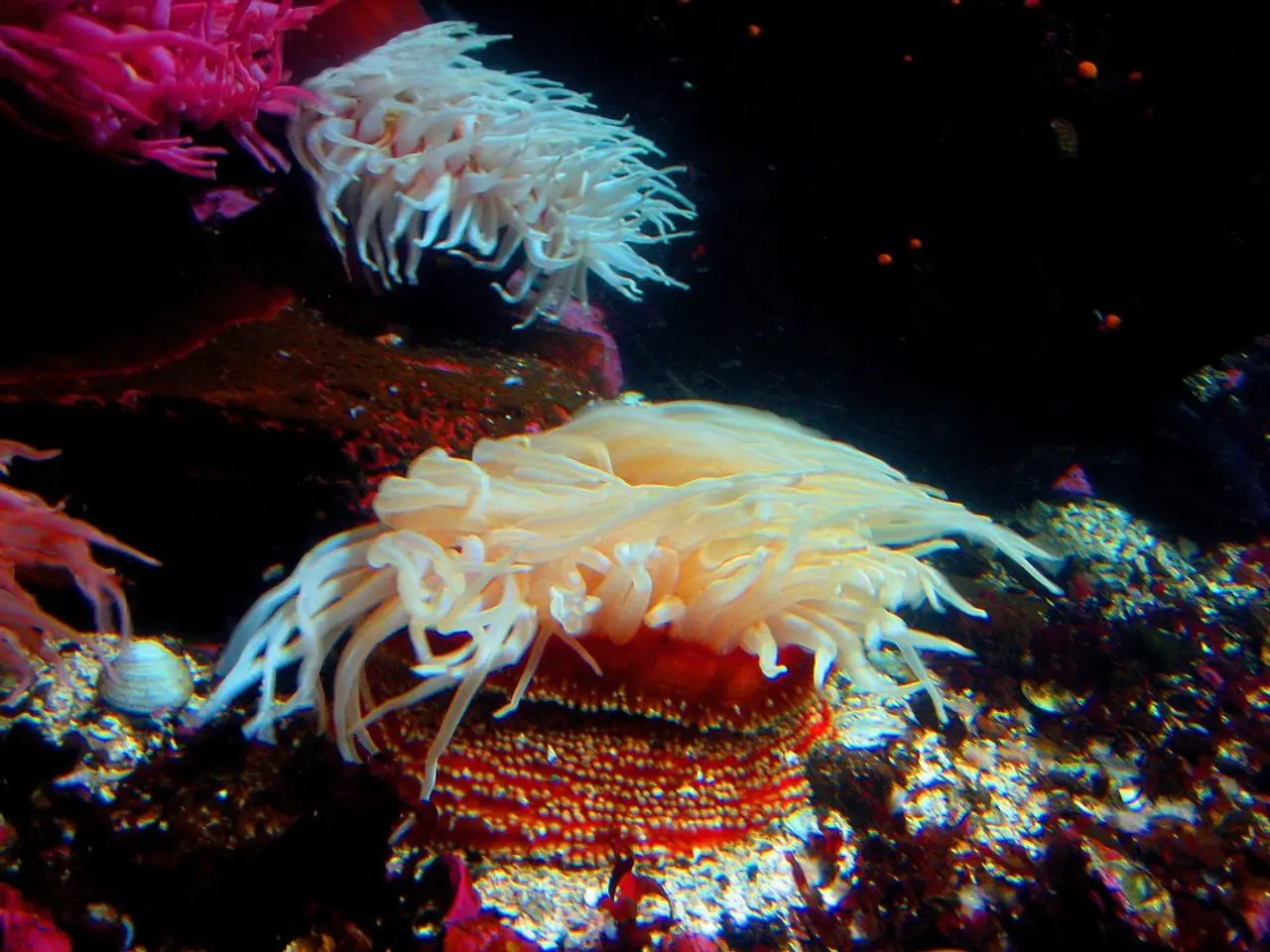Coral Reef preservation effort receives an extra US$25 million in financial support from the Global Fund for its resilience initiatives.
Global Fund for Coral Reefs Expands Efforts to Protect Critical Ecosystems
The Global Fund for Coral Reefs (GFCR), a blended finance platform launched in 2020 by UN agencies, has announced additional grant funding to scale up resilience efforts across coral reef nations. This expansion aims to protect and restore some of the world's most vulnerable coral reef ecosystems, while supporting communities dependent on them.
The GFCR is a public-private partnership driven by over 50 Member States, UN Agencies, financial institutions, philanthropies, impact investors, and conservation organisations. It uses a blended investment approach to unlock finance for vulnerable coral reef regions that typically struggle to access climate funding due to economic risks.
Recent investments include the Egyptian Red Sea Initiative, which aims to increase the protection of one of the longest-living and most resilient reef ecosystems in the world. In the Mesoamerican Region, the GFCR is funding the MAR+Invest programme to contribute to reef and community resilience through blended finance. In Indonesia, the additional support from the GFCR will help ensure sustainable long-term funding for effective MPA management and financing access for reef-positive enterprises. In the Philippines, the GFCR-supported programme, led by Blue Alliance Marine Protected Areas, will scale implementation to cover more than 100 Marine Protected Areas (MPAs) hosting 80,000 hectares of significant coral refugia coverage.
By the end of 2024, GFCR activities spanned 20+ reef nations, supporting over 150 enterprises and improving livelihoods for 30,000 people (about half new jobs for women), and benefiting 4.15 million people indirectly via food security and ecosystem services. The recent funding boost targets resilience scale-up in specific regions, including the Egyptian Red Sea coral ecosystem and crucial reef areas in the Mesoamerican Barrier Reef, Indonesia, and Philippines—all biodiversity hotspots under climate and development pressure.
The GFCR's resilience-focused portfolio includes market-based solutions spanning 23 countries. It funds various projects, including waste treatment and recycling, coral reef insurance, sustainable aquaculture and agriculture, ecotourism, blue carbon credits, and mechanisms for sustainable Marine Protected Area (MPA) finance. These efforts contribute to climate adaptation and economic security in coral-dependent communities, addressing reef degradation drivers at multiple levels.
Leticia Carvalho, Head of Marine and Freshwater Branch of the UN Environment Programme (UNEP) and GFCR Executive Board Co-Chair, emphasized the urgency of investing in coral reef resilience. "The functional extinction of an entire ecosystem, such as coral reefs, is at stake," she said. "We need urgent and scaled collective action to protect these vital ecosystems."
The GFCR is an implementation vehicle for the Global Biodiversity Framework (GBF) and Sustainable Development Goal 14, Life Below Water. It aims to increase the protection and resilience of 3 million hectares of coral reefs globally by 2030, while enabling the growth of at least 10 additional reef-positive businesses in Indonesia and leveraging up to US$50 million in private and public funding for sustainable blue economic transition and conservation efforts.
In Egypt, the initiative, in partnership with the Government of Egypt and the UN Development Programme (UNDP), will establish a landmark Egyptian Fund for Coral Reefs. The programme aims to achieve 2030 targets: 60,000 hectares of coral reefs under improved management, three million community members with increased resilience, and US$60 million leveraged in public and private finance.
The GFCR Coalition includes the Builders Initiative, Bloomberg Philanthropies, Prince Albert II Monaco Foundation, Minderoo Foundation, Paul G. Allen Family Foundation, the Governments of United Kingdom, France, Germany, Canada, and the United States, the Green Climate Fund, Pegasus Capital Advisors, ICONIQ Impact Ocean Co-Lab, the International Coral Reef Initiative (ICRI), the United Nations Development Programme (UNDP), the United Nations Capital Development Fund (UNCDF), the United Nations Environment Programme (UNEP), the International Union for Conservation of Nature (IUCN), the Ocean Risk and Resilience Action Alliance (ORRAA) and the Coral Research & Development Accelerator Platform (CORDAP).
[1] Global Fund for Coral Reefs. (2021). Announcement: GFCR Boosts Funding to Scale Up Resilience Efforts Across Coral Reef Nations
[2] Global Fund for Coral Reefs. (2020). Announcement: GFCR Launches to Protect, Restore, and Build Resilience of Coral Reefs
[3] Global Fund for Coral Reefs. (2021). Factsheet: GFCR Overview
[4] Global Fund for Coral Reefs. (2021). Factsheet: GFCR's Resilience-Focused Portfolio
- The Global Fund for Coral Reefs (GFCR) is a sustainable business platform, aiming to protect and restore vulnerable coral reef ecosystems, while supporting dependent communities.
- GFCR, driven by over 50 member states, UN agencies, and various organizations, uses a blended investment approach to unlock finance for climate-change affected areas.
- Some recent investments include the Egyptian Red Sea Initiative and the MAR+Invest programme in the Mesoamerican Region, aimed at reef and community resilience.
- In Indonesia, the GFCR supports sustainable Marine Protected Area (MPA) management and financing access for reef-positive enterprises.
- The GFCR's portfolio focuses on market-based solutions, including waste treatment, coral reef insurance, and sustainable aquaculture, to address reef degradation drivers.
- Leticia Carvalho emphasized the need for investing in coral reef resilience, stating that the functional extinction of entire ecosystems, such as coral reefs, is at stake.
- The GFCR aligns with the Global Biodiversity Framework (GBF) and Sustainable Development Goal 14, aiming to increase coral reef protection and resilience globally.
- In Egypt, the GFCR, in partnership with the Government of Egypt and the UN Development Programme (UNDP), plans to establish the Egyptian Fund for Coral Reefs, aiming to achieve 2030 targets.
- The GFCR Coalition consists of various prestigious parties, such as the Builders Initiative, Bloomberg Philanthropies, UN agencies, and numerous other influential conservation organizations. They work together to protect some of the world's most critical biodiversity hotspots under climate and development pressure.





